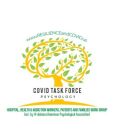Stress
Surviving and Thriving as a Couple in the Pandemic
Ways to protect your relationship from disconnection and conflict.
Posted January 28, 2021 Reviewed by Gary Drevitch

Guest post by Dr. Irina Wen
Our closest relationships can be our strongest support system or the biggest source of stress. Attachment theory teaches us that we are social and bonding animals and our needs for connection follow us from “cradle to grave” (Bowlby, 1969).
The pandemic forced many couples and families to retreat into their homes without having an opportunity to resolve potential pre-existing conflict, unmet needs, and negative feelings in the relationship. The social distancing measures, financial stress, and other demands have put many relationships to a test.
Previous research suggested financial problems, high levels of conflict, and unbalanced parenting and household responsibilities are among the top reasons for couples to separate or file for divorce (Scott et al., 2013).
In China, there was an increase in divorce rates in the wake of COVID19 (Prasso, 2020). An Ipsos poll (2020) indicated that almost 1 in 10 married or partnered individuals in the US reported that they are likely to separate from their partner or spouse at least in part because of the stress related to the pandemic.
Canadian psychologist Sue Johnson, a founder of Emotionally Focused Therapy for couples, observed that contact with a loving responsive partner is a powerful buffer against danger and threat. At the same time as a result of the stress of the pandemic “the key relationship defining questions – “Are you there for me – Can I count on you?” – are shoved front and center” (Johnson, 2020). When we experience disconnection in our relationships, we feel angry, stressed, and alone. It is not uncommon for couples to get stuck in vicious cycles of distance, silence, conflict, fighting, and resentment. As a result, the relationship becomes tense, stressful, and unfulfilling. According to the Emotionally Focused Therapy model, there a several common negative cycles that couples get stuck in:
- Find the Bad Guy (mutual attack cycle): Both partners blame and criticize each other and both feel rejected and unheard.
- The Protest Polka (demand and withdraw cycle): One patrner complains and when the other does not respond, they criticize while the other defends and shuts down.
- Flight and Freeze (tension and avoidance cycle): Partners give up on safe connection and both withdraw into silence and distance.
Underneath any negative cycle, there are loneliness, pain, hurt, and desire to feel safe in the relationship and to be seen by the partner. Below are some recommendations on how to begin to break the negative cycles in the relationship and to promote resilience and connection.
Recognize the negative pattern. “If you can name it, you can tame it.” The first step towards any positive change and transformation is our ability to recognize it. It is important to note that you and your partner are both victims of the negative cycle that took over your relationship; you both got caught up in a pattern that turns your stress response on and results in emotional and behavioral reactions that fuels disconnection.
Honor each other’s differences in dealing with stress. People react differently to stress and danger. One partner might need to talk about his or her anxiety and stress in order to feel better; while another might have the need to “keep it cool,” stay in the functional mode, and push away their feelings in order to keep going. These two different styles are both adaptive but might create dissonance in the couple. It is important to recognize and talk about your potential differences and to create room for those differences.
Find moments to connect. During the day a lot of people are staying in the functional survival mode, leaving little room to feel the feelings that might lurk under the surface. It can be helpful to create moments during the day/evening to connect. Ask your partner how he/she is doing, how his/her heart is feeling? Create space for a range of feelings to come up — fear, sadness, anxiety, uncertainty, hope. There is no right or wrong way to feel.
Express your feelings. Sue Johnson noted that “the most functional way to regulate difficult emotions in love relationships is to share them.” Yet, when we feel upset, we might have difficulty sharing our feelings with our partner. Here are some suggestions to help you navigate tough emotional spots in the relationship:
- Before sharing your feelings with your partner, connect with your emotions first. Often under the initial reaction of anger or frustration there are deeper, more vulnerable emotions of hurt, fear, or sadness. Sharing from a deeper place is more likely to lead to connection.
- Statements that begin with “you should have…” or “you did this again!....” almost always lead a defensive reaction of our partner and potential conflict. Instead, it is more helpful to share your own feelings and how your partner’s behavior affected them. “I statements” make it more likely for you to be heard. (e.g., “I feel hurt when...”).
- When our partner or other family members share something really hard (e.g., how overwhelmed they feel, how sad, worried, etc.) we might feel tempted to try to have them not feel that way or to dismiss their feelings.
- However, it is in these moments of stress and uncertainty that we need connection the most. Instead of jumping into problem-solving, you can ask: “How are you doing? What can I do to support you?” And then listen with openness and curiosity. Simply being there for your partner and listening is often the best way to provide support.
Ask for space if you need. Many couples find themselves sharing small living spaces and working from home, with limited ability to interact with the outside world freely. Being cooped up in one place together for prolonged period of time can be stressful and frustrating. Try to balance shared moments of connection and the need for some alone time. It is helpful to communicate your needs clearly and directly (e.g., “I feel overwhelmed right now and it will be helpful for me to take a few moments to gather my thoughts;” “I would love to have an hour to read my book and then we can watch a show together”).

Irina Wen is a clinical psychologist and Clinical Associate Professor in the Department of Psychiatry at NYU Langone Health. She is a certified therapist and supervisor in Emotionally
Focused Therapy (EFT) and specializes in the treatment of trauma and relationship distress. She is the Lead Clinician at the Steven A. Cohen Military Family Clinic at NYU Langone Health, where
she oversees the couples therapy program for military families. She also offers psychotherapy, consultation, and supervision through her private practice. Dr. Wen is a member of the Hospital, Healthcare and Addiction Workers, Patients and Families working group, part of the COVID Psychology Task Force (established by 14 divisions of the American Psychological Association), which sponsors this blog.
Facebook image: SFIO CRACHO/Shutterstock
References
Bowlby, J. (1969). Attachment. Attachment and loss: Vol. 1. Loss. New York: Basic Books.
Ipsos. (2020). As pandemic drags on, relationships are getting more serious COVID-19 deepening some relationships, widespread “pandemic separations” unlikely. https://www.ipsos.com/sites/default/files/ct/news/documents/2020-08/top…
Johnson, S. (2020). Lockdown with your partner: A wake-up call? Dr. Sue. https://drsuejohnson.com/lockdown-with-your-partner-a-wake-up-call/
Scott, S. B., Rhoades, G. K., Stanley, S. M., Allen, E. S., & Markman, H. J. (2013). Reasons for Divorce and Recollections of Premarital Intervention: Implications for Improving Relationship Education. Couple & family psychology, 2(2), 131–145. https://doi.org/10.1037/a0032025
Prasso, S. (2020). China’s Divorce Spike Is a Warning to Rest of Locked-Down World. BloombergBusinessweek. https://www.bloomberg.com/news/articles/2020-03-31/divorces-spike-in-ch…




